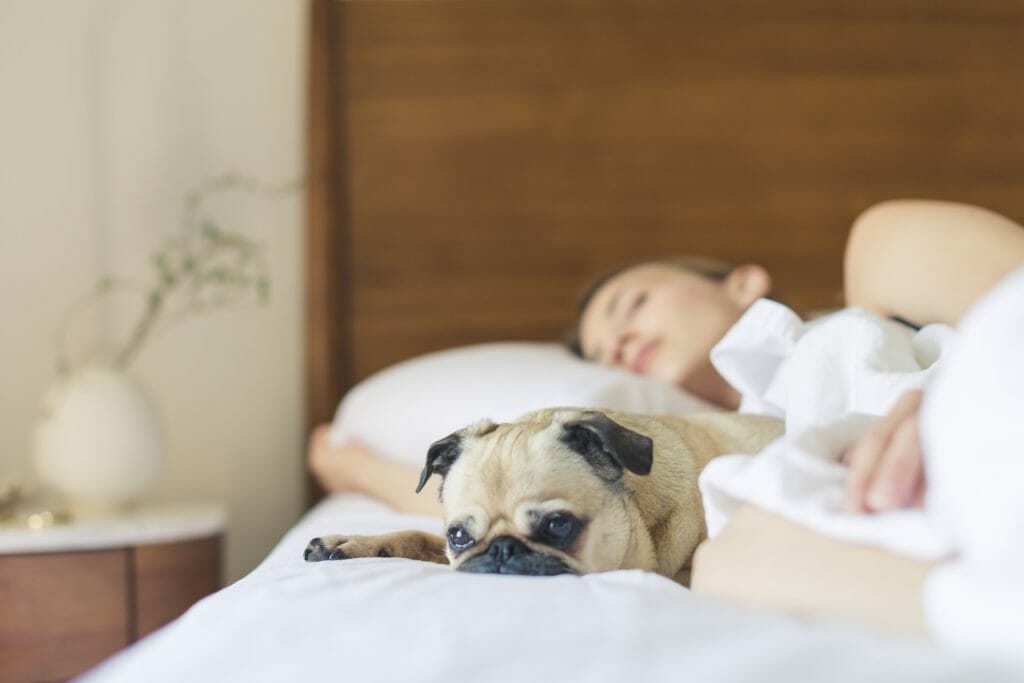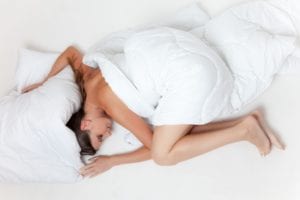Sleep hygiene: A Midlife Must-Have
Let’s talk about sleep hygiene – aka the soothing rituals and smart habits that help you drift off more easily and wake up feeling more like yourself again during perimenopause, menopause, and post-menopause.
To make things simple, we’ve created a handy downloadable guide you can keep close for those nights when your mind won’t switch off and your body refuses to relax.
Why is this such a big deal? Because poor sleep can be one of the most frustrating side effects of any stage of menopause. And yet, it often gets dismissed or written off as “just part of the package.” But we’re here to tell you it doesn’t have to be.
Why Sleep Matters In Menopause
Now, you might think that closing your eyes and lying still means your body’s on pause. But while you’re resting, your body is working overtime – clearing out stress by-products, detoxing, healing tissues, replenishing hormones, and boosting immunity. Phew! It’s a busy bee. 💙
Yep, while you’re sleeping you’re also healing. Think of your body as a night-shift warrior working quietly behind the scenes.
What Gets In The Way?
Modern life, unfortunately. Caffeine, alcohol, stress, screen time, late-night meals – all of these disrupt our natural sleep-wake cycle. And when you throw fluctuating hormones into the mix? It’s a perfect storm for sleep disruption.
As estrogen declines during perimenopause, the stress hormone cortisol tends to rise. Cortisol isn’t bad – it’s essential to get up and going in the morning – but ideally, it should wind down as the day progresses. If it doesn’t? Hello, restless nights. 😊
The Stats Don’t Lie
Centers for Disease Control Study
According to a 2017 report from the US Centers for Disease Control (CDC), sleep problems become more common in women in their late 30s and 40s.
- 56% of women in perimenopause slept less than 7 hours per night
- 24% struggle to fall asleep
- 30% had trouble staying asleep
- Nearly 50% woke up still feeling tired.
- 40% of post-menopausal women slept less than 7 hours
- 27% had trouble falling asleep
- 35% had trouble staying asleep
- Insomnia became more common
That’s a lot of sleep-deprived women! 😴 But the good news? There are some things you can do to improve your sleep – starting tonight.
Your Sleep-More-Soundly Guide
Think of these practises as non-negotiables for a smoother menopause journey. A good night’s sleep helps you feel better, make better food and lifestyle choices, and supports your immune system, hormones, and overall wellbeing.
How Sleep Actually Works
At the centre of your brain is a teeny, pea-sized powerhouse called the pineal gland. It controls your circadian rhythm – your internal sleep-wake clock – and produces melatonin, the hormone that tells your body it’s time to sleep.
Melatonin production kicks in when it gets dark (usually around 9pm), helping you feel relaxed and ready for bed. At the same time, levels of cortisol (your get-up-and-go hormone) should drop. But things like bright lights, noise and heavy meals can throw this balance off.
7 Simple Sleep Hygiene Tips To Try Tonight
1. Stop eating at least 3 hours before bed
Late-night snacking can sabotage sleep because your body’s busy digesting when it should be winding down. If you struggle with insomnia, this simple shift could be a game-changer.
2. Skip caffeine after 2pm
Coffee, tea (yes – even green tea), cola and chocolate can all linger in your system and disrupt sleep. Try herbal alternatives instead.
3. Leave tomorrow’s to-do list for tomorrow
Evening is not the time for problem-solving. No budgeting, planning, or heavy convos before bed – your brain needs to chill too!
4. Embrace the wind down
Create a calming bedtime routine. Read a book, take a bath, pat your pet, do some gentle stretches or fold laundry if that relaxes you.
5. Dim the lights and ditch the screens.
Swap your phone, tablet or TV for soft lighting and screen-free activities an an hour or two before bed.
6. Use aromatherapy to create calm
Diffuse high-quality essential oils like lavender, neroli, and basil. Bonus: Clary Sage is fantastic for menopause support.
7. Soak in an Epsom salts bath
The warm water and natural magnesium in the Epsom salts are both calming and relaxing. You can boost these qualities by adding a few drops of relaxing essential oils like chamomile, lavender, lemon balm or valerian root.
Summary
Listen:
Unlocking Sleep: Tackling The Root Cause With Elina, The Sleep Expert
9 Sleep Fixes You Can Start Tonight (For A Better Tomorrow)
Sweet Dreams 💤
Inspired by Tracy Harrison
@ The School Of Applied Functional Medicine
Just so you know: this article is written by a real person who has studied the physiology of menopause and women’s healthy ageing. While we may use AI as an assistant, the research, insights and heart behind every piece comes from us.









